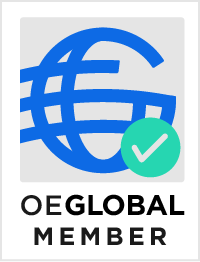
Open Learning



Under the Accessibility for Ontarians with Disabilities Act (AODA, 2005) it is your responsibility, as a publisher of educational content to ensure that your book meets the Web Content Accessibility Guidelines (WCAG) 2.0 accessibility criteria.
All educational content needs to be made accessible. Text-based web documents, quizzes, audio, video, images, H5P interactives, any kind of educational content and its components all need to adhere to universal design principles and consider users of all abilities and how they access materials.
You may consider including an accessibility statement on how to request another format on the landing page to your book.
It is a good practice to discuss editorial changes with accessibility in mind, sharing existing guidelines and original project documentation and goals with your project team. New images added will need to have alt text, new sections will need to have a proper heading structure etc. It’s important to maintain the quality of your open textbook as it’s being revised.
Institutions that choose to reuse materials created elsewhere and put them in their own course websites take on the responsibility of making this content accessible to their own users.
This BC Open Textbook Accessibility Toolkit is an excellent resources and provides tips on accessibility throughout the authoring process outlining best practices of how to incorporate multimedia materials, resource template considerations and test a sample chapter for keyboard accessibility, any instructional content and reading navigation order. It addresses principles of universal design and provides best practices related to:
Attribution:
This section was adapted from Accessibility in the Open Textbook Toolkit by University of Toronto Online Learning, licensed for reuse under a Creative Commons Attribution 4.0 International License
Use this checklist developed by the Assistive Technology Specialists to assist you with ensuring your OER is accessible. If you have any questions about accessibility, please contact the eLearning Liaison.
Conestoga College Library and Learning Services takes the following measures to ensure the accessibility of our OER projects:
Conestoga College aims to conform with Web Content Accessibility Guidelines (WCAG) and the Accessibility for Ontarians with Disabilities Act (AODA). Conestoga College’s compliance with respect to WCAG and AODA has not been assessed by an external third party.
The accessibility of Conestoga College’s OER projects relies on the following technologies to work with the combination of web browser and any assistive technologies or plugins installed on your computer:
These technologies are relied upon for compliance with the accessibility standards used.
Conestoga College assesses the accessibility of our OER projects using the following approaches:
We welcome and encourage feedback on the accessibility of Conestoga’s OER projects. Please let us know if you encounter accessibility barriers by reaching out to Open Learning.
We aim to respond to feedback within 3 business days.